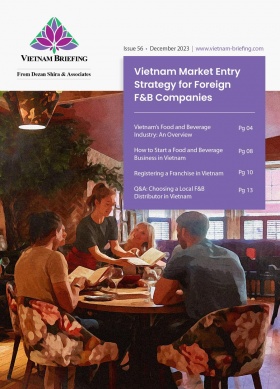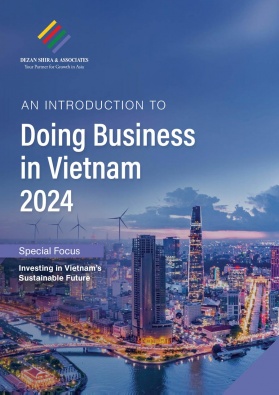Vietnam Housing Law: Draft Decree Guidelines on Foreign Property Ownership
A new draft decree clarifies regulations on foreign property ownership in Vietnam, including criteria, limitations, and permitted methods for acquiring housing.
Vietnam’s Ministry of Construction has released a draft decree to guide the implementation of the country’s amended Housing Law, which will come into force on January 1, 2025.
The draft decree clarifies regulations on foreign ownership of housing in Vietnam, including criteria for foreign individuals and companies to own housing in Vietnam, limits on foreign housing ownership, and permitted methods for acquiring housing.
Below, we explain the new rules of property ownership for foreigners and discuss the proposed regulations in the draft decree.
Regulations on foreign property ownership
Under the Housing Law, foreign organizations and individuals who are allowed to own houses in Vietnam are as follows:
- Economic organizations with foreign investment capital engaged in residential construction projects in Vietnam as stipulated by the Housing Law and other relevant legal regulations.
- Economic organizations with foreign investment capital, branches, representative offices of foreign enterprises, foreign investment funds, and branches of foreign banks operating in Vietnam (collectively referred to as foreign organizations).
- Foreign individuals who are permitted to enter Vietnam.
The economic organizations listed in (a) above can only own housing by executing housing construction investment projects in Vietnam.
Foreign organizations and individuals listed in points (b) and (c) can acquire housing through purchasing or lease-purchasing commercial houses from the investors of residential construction investment projects, receiving gifts, or inheriting commercial houses within residential construction investment projects. However, such property cannot be in designated areas that require national defense and security assurance, which we will discuss below.
The types of housing that can be owned by the above individuals and organizations include both apartment units and individual houses.
Here the draft decree clarifies that foreign organizations must have an Investment Registration Certificate or documents issued by a competent Vietnamese agency to own housing in Vietnam. These documents must be valid at the time of signing any transactions related to housing ownership.
Foreign individuals are also required to have a valid foreign passport to enter Vietnam and a written commitment that they are not eligible for diplomatic privileges and immunities. They must also be residing in Vietnam at the time of signing the transaction for ownership and have documentation proving that the method for acquiring the housing complies with the requirements listed above.
Restrictions on foreign housing ownership in Vietnam
Prohibited areas for foreign housing ownership
Foreign organizations and individuals are not allowed to own houses in projects located in areas requiring “national defense and security assurance”. These areas are as follows:
- Critical areas requiring national defense and security assurance within provincial territories;
- Border communes, border adjacent areas, and island areas;
- Areas containing military bases and armed forces;
- Areas containing headquarters or offices of state administrative agencies, and Party organs from the provincial level and above; and
- Other areas specified by the Ministry of National Defense (MND) and the Ministry of Public Security (MPS).
Housing quota restrictions on foreign ownership
Under the Housing Law, Vietnam will impose caps on the number of houses that can be foreign-owned in different areas.
First, foreign organizations and individuals are only permitted to acquire (through the permitted methods mentioned above) up to 30 percent of the total number of apartments in a condominium building. If it is for individual houses, such as villas and semi-detached houses, then within an area with a population equivalent to that of a ward, they are only allowed to acquire up to 250 houses.
A “ward” in Vietnam is a third-level administrative district, similar to a township. However, a ward does not indicate a specific population size. To address this, the draft decree suggests the population of a ward is set at 10,000 people, which will be applied across all types of administrative districts regardless of whether they are officially recognized as “wards”. This will therefore also apply to communes and commune-level towns.
The Housing Law also states that in cases where an area with a population equivalent to that of a ward (10,000 people under the draft decree) has multiple condominium buildings or individual houses along a street, foreign organizations and individuals can still only acquire up to 30 percent of the total number of apartments in a condominium building or up to 250 houses.
The draft decree further clarifies this clause, stating that in cases where the condominium building has multiple blocks or sections sharing the same base, foreign organizations and individuals are only allowed to own up to 30 percent of the total number of residential units within each block or section, so the ratio cannot be unevenly spread across different buildings.
Meanwhile, for individual houses, the draft decree clarifies that in an area with a population of 10,000 people where only one residential construction investment project exists, foreign organizations and individuals are allowed to own up to 10 percent of the total number of individual houses within the project, with a total maximum of 250 houses.
Where there are two or more projects within the same area, foreign organizations and individuals are only allowed to own up to 10 percent of the total number of individual houses within each project and a maximum of 250 houses across all projects. Moreover, if foreign organizations and individuals already own the maximum number of individual houses as allowed, but there are multiple residential construction investment projects within the given areas, then they cannot acquire any additional individual houses in other projects within the same area.
Under the Housing Law, if a foreign organization or individual acquires a house and this acquisition exceeds the limits on foreign ownership within the area, then the foreign organization or individual is only entitled to the value of the house.
Tenure limits on property ownership
Under Vietnam’s laws governing land use rights, land is collectively owned by the people and administered by the government on their behalf. Therefore, property owners cannot have full and legal ownership of land, and their rights are limited to land use rights permitted within the law. This also applies to foreign organizations and individuals.
Under the Housing Law, foreign individuals can only own a house for a period of up to 50 years from the date of issuance of the Certificate of Ownership. This can be extended once for a period of 50 years.
Meanwhile, the ownership tenure of foreign organizations is limited to the tenure specified in the Investment Registration Certificate issued to that organization, including the extended period. The ownership tenure is calculated from the date the organization is granted the Certificate of Ownership and must be clearly stated on this Certificate.
Draft decree provisions on extending ownership tenure
The draft decree outlines the required documents and procedures to extend the ownership tenure for foreign organizations and individuals.
The documentation required for requesting an extension is as follows:
- A request letter specifying the proposed extension period;
- A certified copy of the Ownership Certificate for the house;
- A valid copy of the passport of the house owner (where the owner is a foreign individual); and
- An Investment Registration Certificate extension issued by the competent authority of Vietnam (where the owner is a foreign organization).
To apply for the extension, the applicant must submit the above documents directly or via postal service to the People’s Committee of the province where the house is located three months before the expiration of the ownership tenure.
The provincial People’s Committee will then review the application within 30 days of receiving the documents. If the conditions specified in the Housing Law are met, then the Committee will issue a written approval for a one-time extension of the house ownership tenure as requested by the house owner, up to a maximum of 50 years from the expiration date of the initial ownership tenure, for individual owners.
For foreign organizations, the extension cannot exceed the tenure stated on the Investment Registration Certificate that has been extended by the competent authority of Vietnam.
About Us
Vietnam Briefing is published by Asia Briefing, a subsidiary of Dezan Shira & Associates. We produce material for foreign investors throughout Asia, including ASEAN, China, and India. For editorial matters, contact us here and for a complimentary subscription to our products, please click here.
Dezan Shira & Associates provide business intelligence, due diligence, legal, tax and advisory services throughout the Vietnam and the Asian region. We maintain offices in Hanoi and Ho Chi Minh City, as well as throughout China, South-East Asia, Dubai, and India. For assistance with investments into Vietnam, please contact us at vietnam@dezshira.com or visit us at www.dezshira.com.
- Previous Article Vietnam’s Digital Infrastructure Master Plan to 2030: Roadmap to a High-Tech Future
- Next Article Australia Upgrades Relationship with Vietnam to a Comprehensive Strategic Partnership








